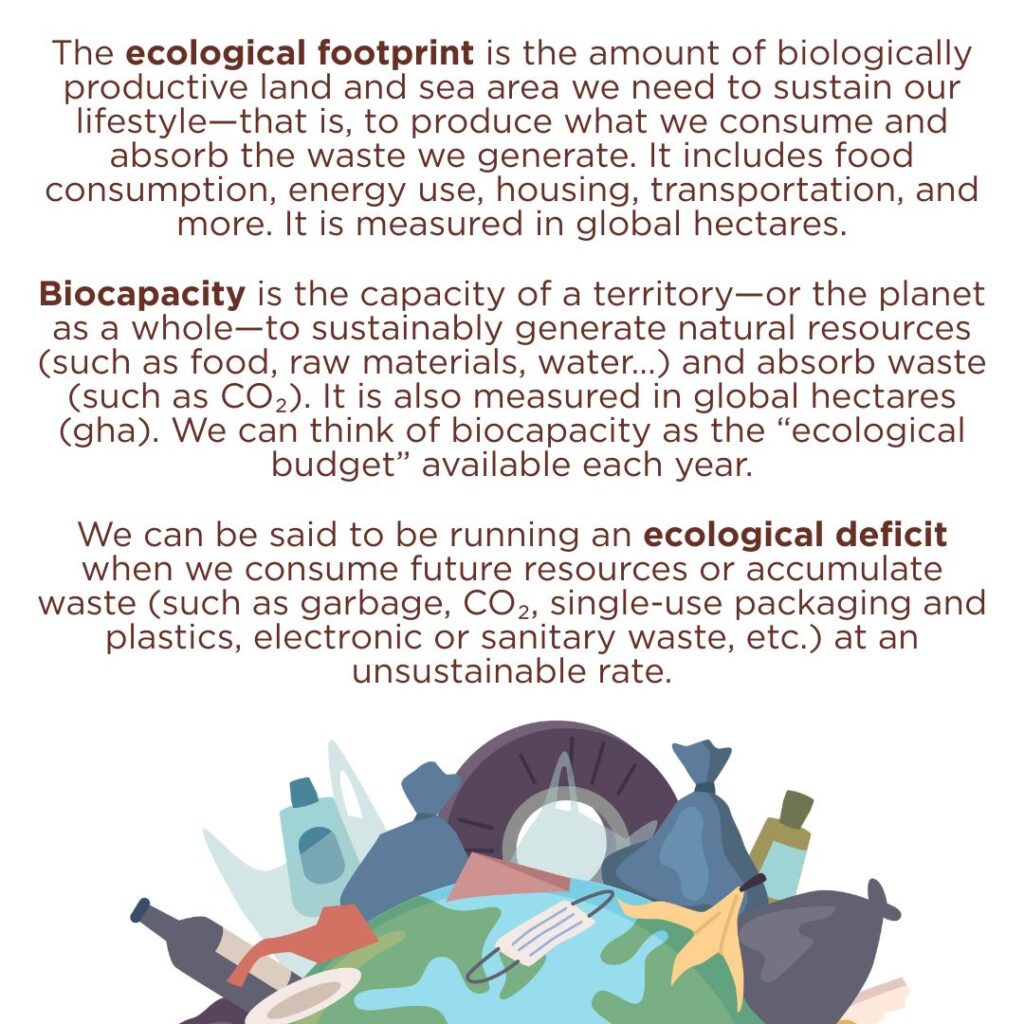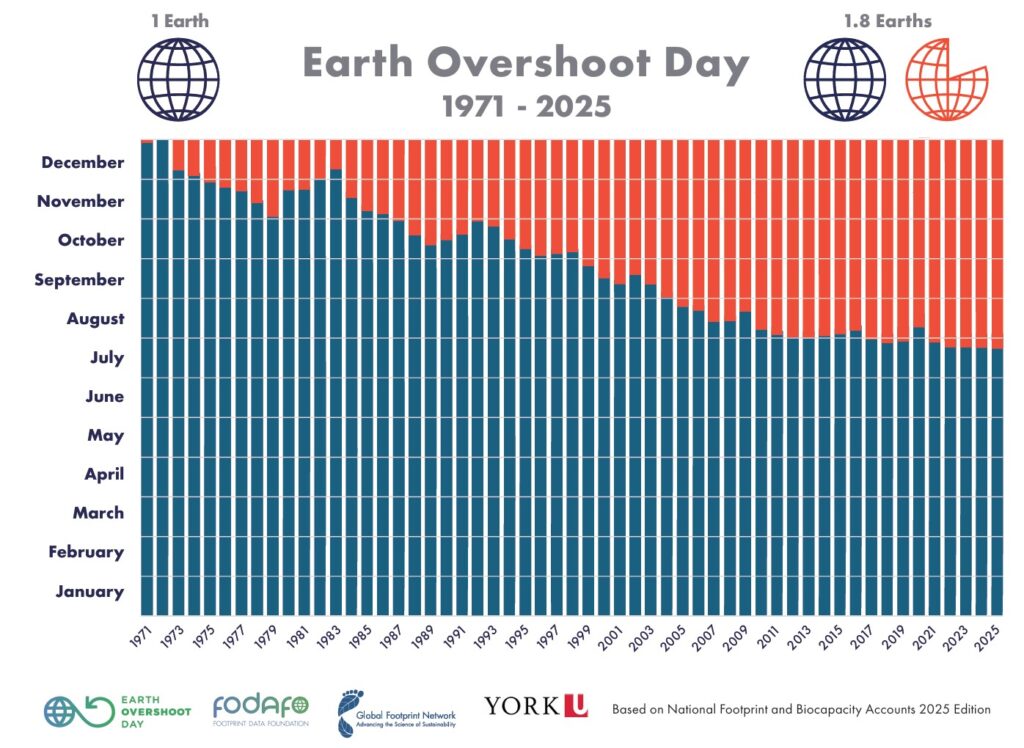Views: 1186
Today, July 24, is Earth Overshoot Day. This is the date on the calendar when humanity’s demand for natural resources since January 1 exceeds the planet’s capacity to regenerate them in an entire year. This date, sadly, keeps arriving earlier each year. However, there are some actions we as citizens can take to live more sustainably.
Given that nearly half of the planet’s biocapacity is used for food, transforming the agri-food system is key to reducing the waste of resources and moving toward a more sustainable model. Choosing food that is locally produced and respectful of nature is the first step in reducing our ecological footprint! Custòdia Agrària, GOB’s Land Stewardship program, supports the farmers who produce it.
Living within the planet’s ecological limits is possible.
In this context, GOB has promoted several studies carried out by the Global Footprint Network to compare the environmental impact of food produced on farms in the Agrarian Custody program with that of conventional production.
The three studies show very significant reductions in environmental impact:
- 🐄 Beef: the ecological footprint of 1 kg of beef produced on Agrarian Custody farms is 60% lower than the national average. These farms prioritize grazing-based diets, minimize artificial fertilization, and avoid storing manure in liquid form, thus reducing methane emissions.
- 🍅 Fruits and vegetables: plant-based products from these farms have an ecological footprint 66% lower than the national average. This is due to the lower dependence on agrochemicals and savings in transportation.
- 🐖 Cured meats: the ecological footprint of cured meat production is 71% lower on Agrarian Custody farms compared to the national average, mainly due to the reduction in external feed and energy savings.
In all three cases, maintaining a mosaic landscape—especially the conservation of wooded and shrub areas within the farms—helps increase the Earth’s biocapacity while reducing the ecological footprint of these farms. This is what we call the “custòdia factor.”
These data confirm that a sustainable agrarian model is not only viable, but essential to reconciling food production with the planet’s health. At a time when the global ecological footprint is growing alarmingly, Menorca can be an example of how to face the challenge with responsibility and concrete actions.
The results are clear: opting for local, proximity-based, and agroecologically sound food is the most reasonable and effective alternative to postpone Earth Overshoot Day.

Earlier every time
In what seems to be an inexorable trend, Earth Overshoot Day has been moving progressively forward year after year: while in the 2000s it fell in late September, the following decade saw it leap into early August, and now it is already at the end of July. Illustratively, the year we went into lockdown was an exception: in 2020, the Covid‑19 pandemic drastically reduced human activity, allowing the date to be pushed back to August 22—the latest of the decade. Unfortunately, in 2021 the pace of resource depletion rebounded, and this year the date has moved forward again, arriving after just 205 days—sooner than ever.

Want to get a global overview of the Agrarian Custody program? The following video offers a one-minute summary. And if you want to meet the farmers, the farms involved, and their products, check out our catalogue.

